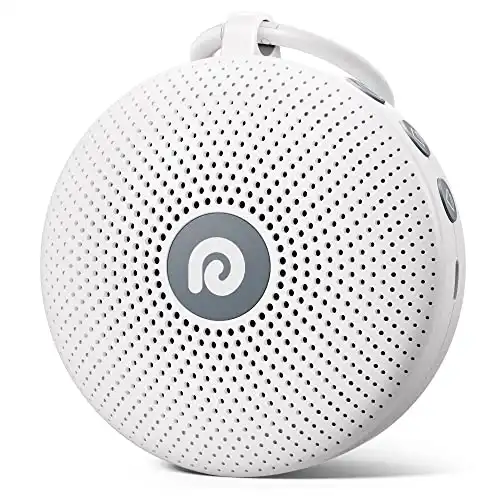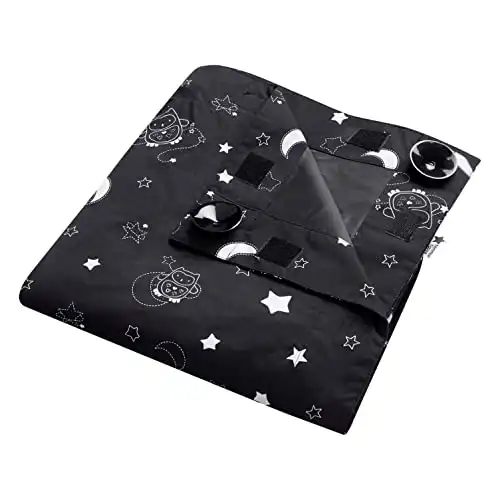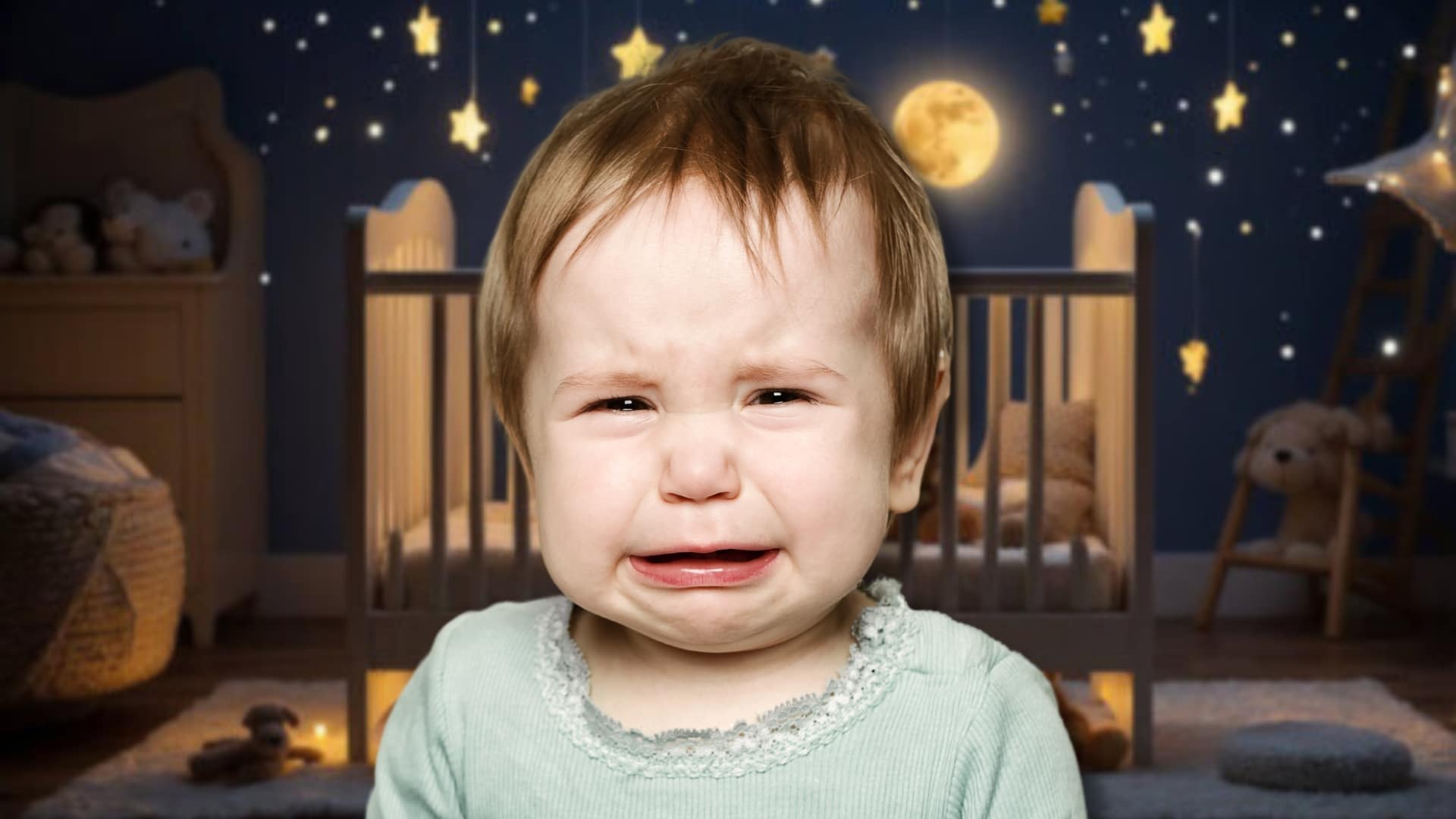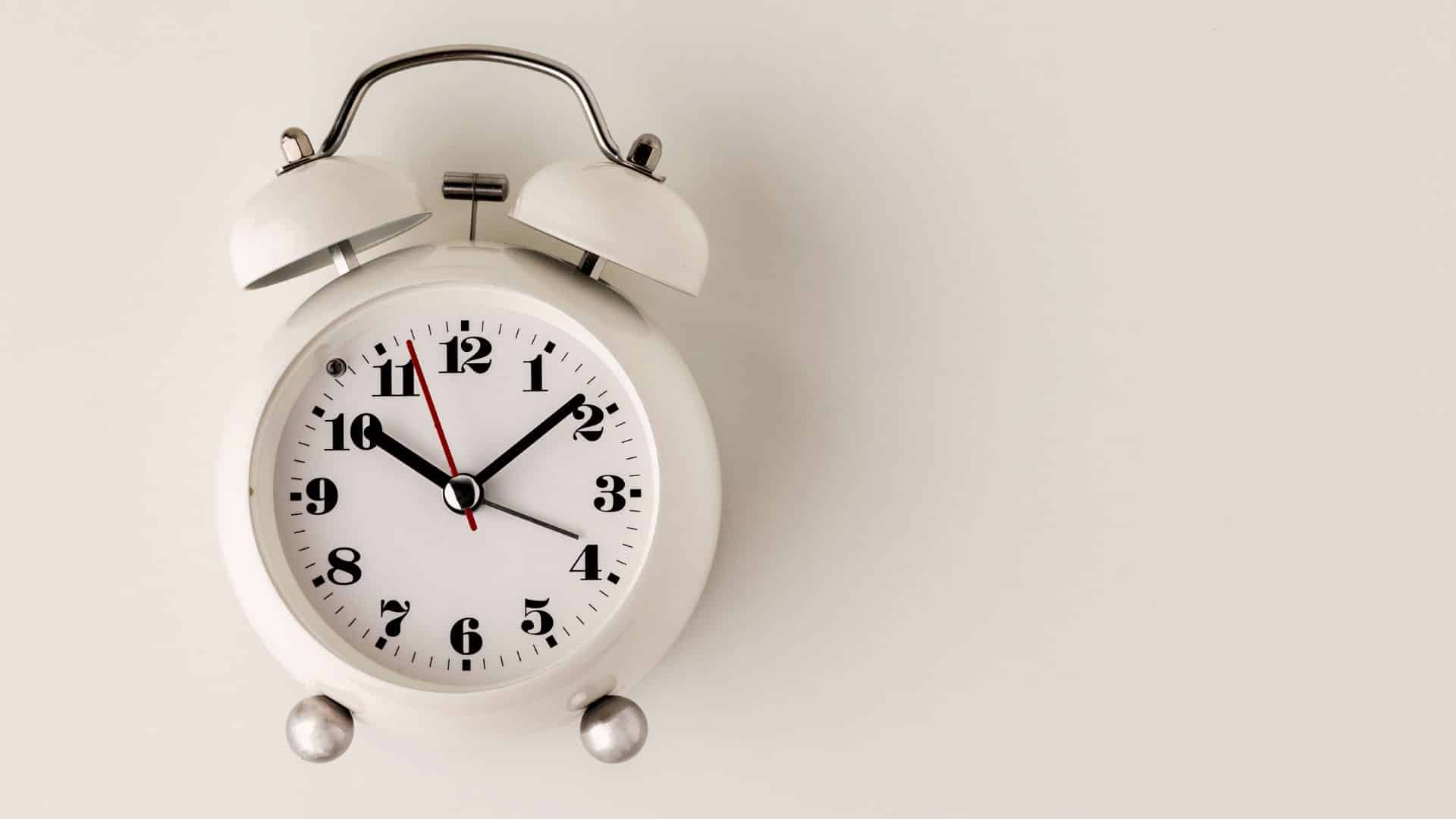You will often hear me talk about melatonin when children are preparing to go to sleep, but what actually is melatonin and why is it so important? And what has baby melatonin got to do with it all?
What Is Melatonin?
Melatonin is a hormone that regulates the sleep-wake cycle in humans. It is produced by the pineal gland in response to darkness and is responsible for our sleep patterns for how and when we sleep.
How Does Melatonin Work?
Melatonin is released by the pineal gland when our brains recognise that our surroundings are getting darker. This triggers a chain reaction in your body to start winding itself down for rest. Because of this, melatonin has often been referred to as a “sleep hormone.”
While melatonin production isn’t essential for sleeping, you will sleep better when you have the highest levels of melatonin in your body.
The reverse happens when our brains recognise our surroundings are getting or remaining light. Exposure to bright light (from screens to house lights) suppresses the release of melatonin which can lead to difficulties falling asleep and staying asleep.
NOTE: You have low melatonin levels during the daylight hours and peak levels of melatonin during the nighttime. Therefore, the longer the night, the longer your pineal gland secretes melatonin… Which is why people living in the Northern Hemisphere struggle to wake up in the depths of winter!
Do Babies Produce Melatonin?
Not at first.
In babies, the production of melatonin is not fully developed until they are about 3-4 months old and this is why newborns sleep for shorter periods and wake up frequently.
Once baby’s hypothalamus develops more and starts to respond to the difference between light and dark, the biological internal clock that regulates the sleep-wake cycle (also known as the circadian rhythm) begins to become established.
Looking to get your little one to sleep quickly and effortlessly? Check out my Bedtime and Nap Cheat Sheet and master the art of making daytime naps and bedtimes as seamless as possible.
A bedtime & nap cheat sheet so good your little one will ask you to put them to bed...
Laura Williams "This is a life saver! I'm so glad I downloaded your bedtime & nap cheat sheet. My little one actually asked me to put him to bed last night! Unbelievable! Thank you so much!"
Click Here For The FREE Cheat Sheet
Baby Melatonin Supplements And Their Types
Melatonin supplements are available over-the-counter and are commonly used to treat sleep disorders in adults.
However, you need to be very careful when considering giving melatonin supplements to your baby and that is why their use in babies is not recommended without consulting a pediatrician.
There is limited research on the safety and effectiveness of melatonin supplements in babies, and there is a real risk that these supplements may have adverse effects on your little one development.
There are different types of melatonin supplements available, including:
- liquid drops,
- chewable tablets,
- and gummies.
As with all drugs or supplement taking, it is important to follow the dosage instructions carefully and not exceed the recommended amount.
NOTE: It is also important to ensure that the supplement does not contain any additional ingredients that could be harmful to your child.
Use Of Melatonin In Babies
If your baby is having sleep difficulties such as trouble falling asleep or staying asleep, you may be considering using melatonin.
While melatonin is generally safe for adults and children with sleep disorders when taken as prescribed by a doctor, there isn’t enough evidence on infant safety.
I cannot say it enough…
Before giving melatonin to your baby, please discuss the potential risks and benefits with your child’s paediatrician.
Melatonin Dosage For Babies
Because of the lack of research and medical evidence about giving melatonin to babies, there is no official recommended dosage for this age group and giving your baby too much can be dangerous.
The American Academy of Pediatrics (AAP) recommends against giving melatonin to healthy children. If you feel your baby has a sleep disorder, the AAP advises that you speak with your paediatrician to determine if melatonin is appropriate and what dosage to use.
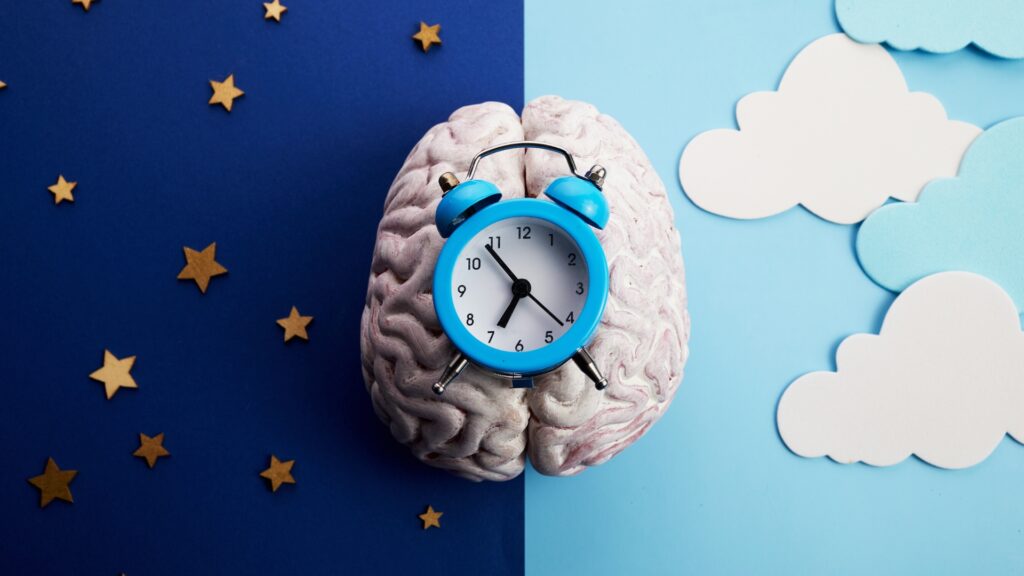
Safety and Side Effects of Melatonin Supplements
When considering giving your baby melatonin supplements, it is important to understand the potential adverse effects and safety concerns associated with their use.
As there have been no official reports on baby melatonin, the following is a list of potential adverse effects of taking melatonin supplements in adults and children.
Therefore they should definitely be noted if you are considering giving them to your baby:
- Headaches
- Drowsiness
- Nausea
- Dizziness
- Irritability
- Mood changes
- Restless leg
- Increased urination
- Daytime drowsiness
Long-Term Effects Of Melatonin On Babies
The long-term effects of melatonin in babies and children are not well understood. Melatonin can affect hormonal development, which is particularly important in babies and young children.
NOTE: Pediatric melatonin ingestions have increased in recent years, and calls to poison control centres for melatonin have also increased. Always keep melatonin out of children’s reach to prevent accidental ingestion.
Improving Sleep Habits in Babies Without Using Melatonin
As a parent, you know that getting your baby to sleep through the night can be a challenge.
However, there are some things you can do to help your little one develop healthy sleep habits without resorting to taking melatonin supplements.
1. Establish A Routine
One of the most important things you can do to help your baby sleep better is to establish a consistent bedtime routine. This should include a quiet lead-up to bedtime, a bath and a bedtime story,
By following the same routine every night at the same time every night, you will help your baby learn when it’s time to sleep.
2. Monitor Behavior
It’s important to pay attention to your baby’s behavior during the day to help them get a better night’s sleep. Make sure they are getting enough physical activity during the day.
Also, limit screen time and electronic devices in the hours before bedtime, as the blue light emitted by these devices interferes with the sleep cycle, making it harder for baby to fall and stay asleep.
3. Get Daytime Sleep Right
Ensuring your baby gets the right amount of sleep in a 24-hour period is essential to establishing a healthy bedtime routine and successful nighttime sleep.
Make sure your little one is getting enough hours of sleep so that they are primed and ready for bedtime when it comes around.
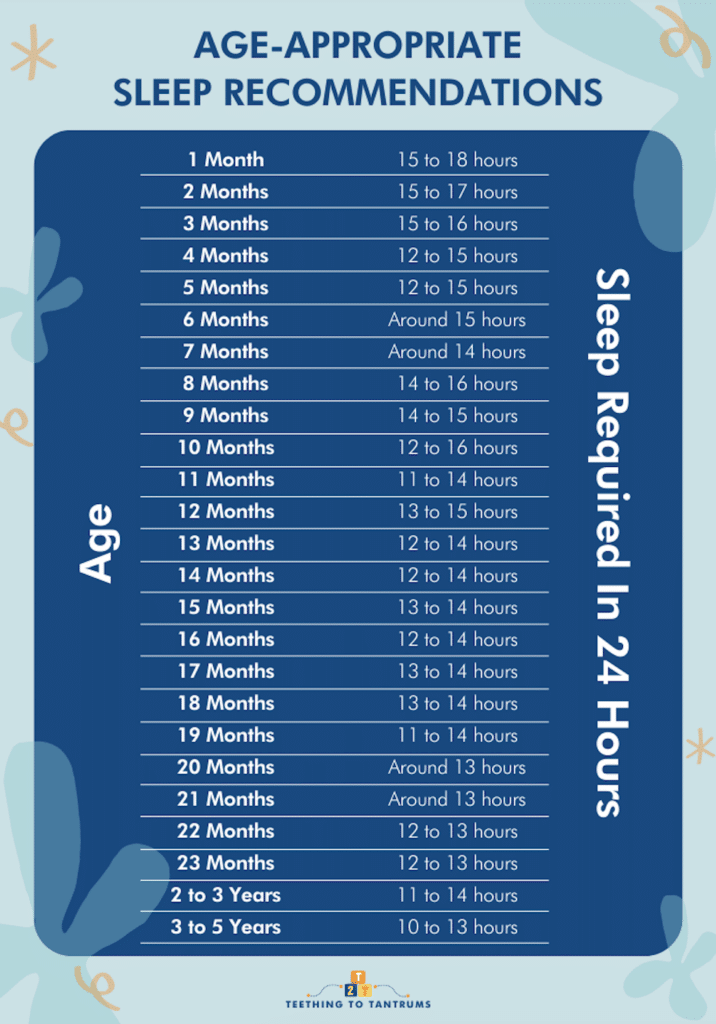
4. Use Sleep Strategies
There are several sleep strategies you can use to help your baby fall asleep and stay asleep.
These include swaddling, using a white noise machine, and having a pacifier.
Sleep associations will vary from baby to baby, so see what your little one prefers and use it to your advantage!
White noise machines are a game-changer for your little one's sleep and having one that plays all night is a must. With a long-lasting battery, this compact and stylish white noise machine contains 21 non-stop relaxing noises, which will lull your little one to sleep night after night, no matter where you are!
NOTE: If you use a pacifier in the early days, be prepared to put it back in baby’s mouth repeatedly when it falls out as they won’t be able to do it themselves yet!
5. Focus On Nutrition
Good nutrition is essential for your baby’s overall health, including their sleep. Make sure your baby is getting enough to eat during the day and try to avoid feeding them right before bed.
Additionally, if you’re still breastfeeding, avoid drinking caffeine, as it gets passed to baby through your breast milk which will interfere with their sleep. If baby is weaning, avoid high-sugar foods before bed.
6. Create A Calm Environment
Creating a calm and relaxing sleep environment can help your baby feel more comfortable and fall asleep faster.
This can include dimming the lights, using a comfortable mattress and bedding, black out blinds and keeping the room at a comfortable temperature between 16-20°C (61-68°F).
Maintaining a good sleep routine with your baby can be tricky, especially through changing seasons or when you’re away from home! This beautiful blackout blind from Tommee Tippee is made from lightweight premium fabric and completely blocks out daylight, helping to create a dark and sleepy space for baby, no matter where you are!
7. Avoid Rocking To Sleep
While it may be tempting to rock your baby to sleep, this can create an unhealthy sleep association. Try to always put your baby down drowsy but awake, so they learn to fall asleep on their own.
Age-Appropriate Sleep Schedules
One of the best ways to combat sleep issues in babies and young children is to be well-informed about what their sleep requirements are.
If you want to know what baby’s regular sleep schedule should look like, here are my posts to ensure your little one is getting enough age-appropriate sleep.
- Newborn Sleep Schedule
- 1 Month Old Sleep Schedule
- 2 Month Old Sleep Schedule
- 3 Month Old Sleep Schedule
- 4 Month Old Sleep Schedule
- 5 Month Old Sleep Schedule
- 6 Month Old Sleep Schedule
- 7 Month Old Sleep Schedule
- 8 Month Old Sleep Schedule
- 9 Month Old Sleep Schedule
- 10 Month Old Sleep Schedule
- 11 Month Old Sleep Schedule
- 12 Month Old Sleep Schedule
Sleep Regressions
And if you suspect your baby is suffering from a sleep regression, read these posts.
- 4 Month Sleep Regression
- 6 Month Sleep Regression
- 8 Month Sleep Regression
- 10 Month Sleep Regression
- 12 Month Sleep Regression
Frequently Asked Questions About Baby Melatonin
Looking for more information about baby melatonin and its supplements? Here are the answers to the most commonly asked questions.
Is It Safe To Give Melatonin To Infants?
There is no research that has established the safety of melatonin for infants. The American Academy of Pediatrics (AAP) advises against giving melatonin to babies and young children. Melatonin is a hormone that affects the body’s natural sleep-wake cycle, and its use in infants is not recommended.
How Old Should A Baby Be Before Taking Melatonin?
The AAP recommends not giving melatonin to children under the age of 3 unless advised by a doctor. If your child is older than 3 and has difficulty sleeping, talk to your pediatrician about whether melatonin is appropriate for your child.
Are There Any Side Effects Of Giving Melatonin To A Baby?
Melatonin can cause drowsiness, which is why it is often used as a sleep aid. However, it can also cause other side effects, such as headaches, dizziness, and nausea.
There is also concern that long-term use of melatonin may affect the development of a child’s natural sleep-wake cycle.
Can Melatonin Help My Baby Sleep Through The Night?
Melatonin is not a magic solution to sleep problems. While it may help some children fall asleep faster, it does not necessarily help them stay asleep throughout the night.
There are many factors that can affect a baby’s sleep, including their age, temperament, and sleep environment.
It is important to establish a consistent bedtime routine and create a sleep-friendly environment to help your baby sleep better.
What Are Some Natural Alternatives To Melatonin For Baby Sleep?
There are several natural strategies that can help improve infant sleep instead of giving your child melatonin.
These include establishing a consistent bedtime routine, getting outside every day, ensuring your baby is getting the right amount of daytime sleep, creating a sleep-friendly environment, and avoiding stimulating activities before bedtime such as screens or physically active games.
Other strategies include using white noise, swaddling, and offering a pacifier.
If your baby continues to have difficulty sleeping, seek medical advice or visit a sleep specialist to find out about other strategies that may be appropriate.
When Do Children Need Melatonin?
Long-term use of melatonin for kids is only appropriate for those suffering from sleep issues… such as children with insomnia, ADHD, autism and other neurodevelopmental disorders who have been prescribed it by a health care provider.
How Much Melatonin Should A Child Take?
In children, melatonin is typically administered in doses of 1 – 3mg about 30 – 60 minutes before bedtime.
NOTE: There is no recommended amount of melatonin for babies and you should always consult with a medical professional before administering melatonin to your child.
Need More Parenting Help?
- Download our FREE Perfect Sleep Cheat Sheet. It’s a free, easy-to-use and proven formula designed for parents of 0-5 year olds to master the art of consistently undisturbed and restful sleep without the yelling, nagging or exhausting long-winded evenings.
- Check out our Parenting Toolbox. You’ll get access to expertly-chosen products that you can guarantee are the best for your little one and your wallet.
- Ready to create the calm, peaceful evenings you deserve? Then checkout our most popular course - The Bedtime Battles Masterclass

A bedtime & nap cheat sheet so good your little one will ask you to put them to bed...
Laura Williams "This is a life saver! I'm so glad I downloaded your bedtime & nap cheat sheet. My little one actually asked me to put him to bed last night! Unbelievable! Thank you so much!"
Click Here For The FREE Cheat Sheet
